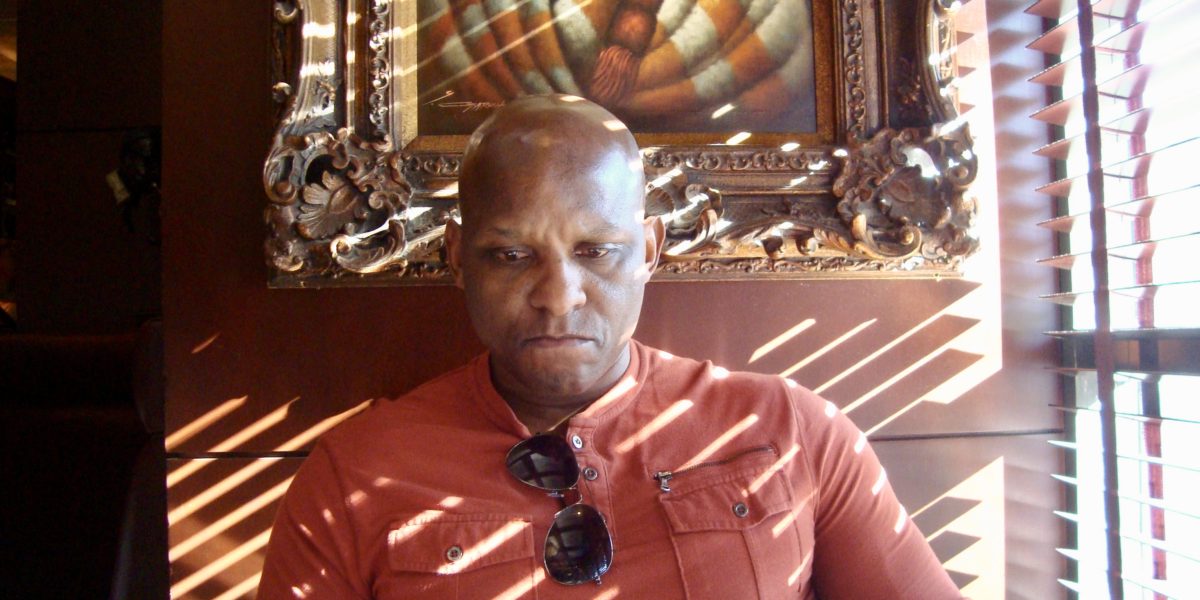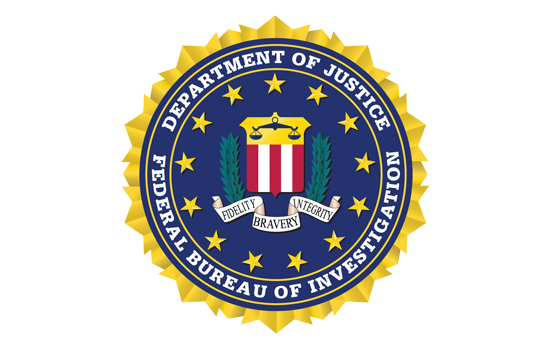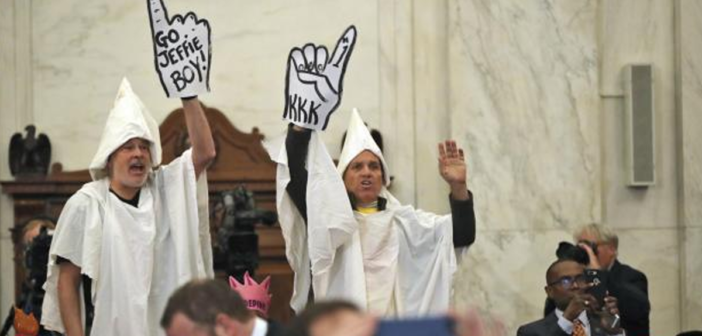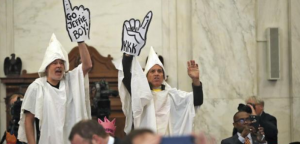
Thanks Common Sense Nation
ET Williams aka The Doctor Of Common Sense
Listen To Todays Show At The Link Below:
The Doctor of Common Sense


Thanks Common Sense Nation
ET Williams aka The Doctor Of Common Sense
Listen To Todays Show At The Link Below:


CENTRAL ISLIP, N.Y. — The attorney general of the United States, Jeff Sessions, came on Friday to this Long Island area besieged by the transnational gang known as MS-13, and in a 20-minute speech to local police commissioners and sheriffs vowed to eradicate the gang by cracking down on illegal immigration.
Mr. Sessions said the gang, which is linked to El Salvador, carries a threat similar to the Colombian cartels and the mafia. He said it smuggled gang members across the United States border and recruited young immigrants.
His message was familiar, and it bore the wishes of President Trump, who Mr. Sessions said was “particularly alert to” the violence affecting Suffolk County, where the bodies of four young men who had been brutally killed were found near a park on April 13.
The authorities contend the killings had the markings of MS-13, which would bring the gang’s body count to 15 in Suffolk County since the beginning of 2016, the most violent stretch since MS-13 took hold on Long Island in the late 1990s.
“The MS-13 motto is kill, rape and control,” Mr. Sessions said at the United States Courthouse here. “Our motto is justice for victims and consequences for criminals. That’s how simple it is. Prosecute them, and after they’ve been convicted, if they’re not here lawfully, they’re going to be deported.”
Mr. Sessions talked tough, declaring that “this is the Trump era,” when the federal government would back law enforcement. He said that he would add prosecutors to the Eastern District of New York. On Wednesday, Gov. Andrew M. Cuomo of New York had come to the area to announce that he would add 25 State Police officers to the gang-fighting efforts.
Mr. Sessions did not, however, offer assurances to the sizable immigrant community that its members could report crime to the police without worrying about their immigration status.
That has been a concern for local law enforcement officials, who fear that the Trump administration’s promise to crack down on undocumented immigrants will destroy trust in the community and hamper investigations. In presentations throughout the county, the Suffolk County police commissioner, Timothy Sini, said that if crime victims or witnesses came forward, the police would not ask about their immigration status.
Mr. Sessions called the notion of strict immigration enforcement eroding trust an “exaggerated argument” and said that people could still call 911 anonymously to report crime.
He said that prosecuting immigrants who had entered the country illegally and committed crimes was still the federal government’s priority, and that the government was not “out seeking witnesses to crimes to deport.” But he added, “It cannot be that the attorney general grants immunity contrary to law for people who violate the laws of the United States.”
Mr. Sessions then met with law enforcement officials from Suffolk County, Nassau County and the State Police to discuss ways to best fight a gang whose hallmark weapon is the machete.
Before Mr. Sessions arrived, about 200 protesters gathered in the early morning outside the courthouse, across the lawn from the armored cars and Homeland Security guards.
“I’m concerned that his response is anti-immigrant, which would lead to racial profiling Latinos, African-Americans,” said the Rev. Calvin O. Butts III, the president of the State University of New York at Old Westbury.
But Representative Peter T. King, a Republican from the Second District of New York, which includes Central Islip and neighboring Brentwood, was visibly angered by the protesters. He had invited Mr. Sessions to Long Island to meet with law enforcement officials to help solve the problem, and attended a news conference after Mr. Sessions’s speech.
“They should be on their knees thanking him, not out there protesting,” Mr. King said at the news conference. “It’s shameful, it’s disgraceful that leaders in the community would criticize the attorney general.”
Mr. Sessions said the first step to combating criminal groups like MS-13 was to secure the border and restore “a lawful system of immigration.” He noted that the administration was adding immigration judges at the border to expedite deportations, and criticized the “lawless practice” of sanctuary cities that do not cooperate with immigration authorities. (Though, in a reversal, he said that he was “a big admirer” of the New York Police Department for leading the way in community-based procedures, and proving that “broken-windows strategies work,” referring to aggressively policing minor violations to prevent more serious crimes.)
“We cannot continue with this transporting across our border illegal immigrants who have not been properly vetted and actually are part of criminal organizations,” Mr. Sessions said.
He did not elaborate on how MS-13 smuggles gang members into places like Long Island, but last week, Mr. Sini did.
“There is no question that MS-13 members who have immigrated illegally here have recruited individuals coming over,” he said. Mr. Sini added that intelligence showed that MS-13 was threatening local families to become legal guardians for gang members.
The numbers, he said, are indicative of this trend: seven of the 13 MS-13 gang members indicted in a sweep by the United States attorney’s office in March had entered the country as unaccompanied minors. Ten of those indicted were undocumented immigrants.
About 4,000 unaccompanied minors have settled in the county in the last several years after fleeing the violence-racked countries of Central America, and gang members have preyed on them. About 400 children who entered the country unaccompanied and relocated to Brentwood are now enrolled in the school district, Levi McIntyre, the superintendent, said last week.
“The best way to tackle the problem is to convince young people to stay away from the gangs,” Mr. Sessions said. During a news conference, he would not commit to providing financial resources to Suffolk County for intervention or prevention programs.
Later, when he met with the families of two teenage girls from Brentwood who were killed in September, he did make that promise, said Evelyn Rodriguez, the mother of one of the girls, Kayla Cuevas, 16.
“He told me, ‘Rest assured that this is going to be spoken about, talked about, and there will be more resources and programs to our community and schools,’” Ms. Rodriguez said. “I’m happy that he did come out and hear our concerns.”
La Mara Salvatrucha, shortened to MS-13, originated as a street gang in Los Angeles in the 1980s, with members who were refugees from El Salvador. It developed into a transnational organization. Mr. Sessions said he was told that the gang had headquarters in the jails of El Salvador and had 30,000 members, 10,000 of them in the United States.
On paper, the Suffolk police seemed to make progress after the killings of Ms. Cuevas and the other girl, Nisa Mickens, 15, arresting 170 gang members. Then came the deaths of the four young men. Two of them were immigrants from Honduras who had escaped gangs there.
“I have a message for the gangs that target our young people: We are targeting you,” Mr. Sessions said. “We are coming after you.”


We now have the details on Jeff Sessions’ first meeting with the Russian ambassador in 2016. It turns out the Senator spoke to the Russian ambassador on the invitation of the Obama Administration. Fox News reports:
The first came at a conference on “Global Partners in Diplomacy,” where Sessions was the keynote speaker. Sponsored by the U.S. State Department, The Heritage Foundation, and several other organizations, it was held in Cleveland during the Republican National Convention.
The conference was an educational program for ambassadors invited by the Obama State Department to observe the convention. The Obama State Department handled all of the coordination with ambassadors and their staff, of which there were about 100 at the conference.
Apparently, after Sessions finished speaking, a small group of ambassadors—including the Russian ambassador—approached the senator as he left the stage and thanked him for his remarks. That’s the first “meeting.” And it’s hardly an occasion—much less a venue—in when a conspiracy to “interfere” with the November election could be hatched.
So wait a minute — the Obama Administration set this up and the New York Times reports it is Obama administration staffers who are working to push out all the Russia information being used against Donald Trump and his administration.
Coincidence?
Obama Administration Officials Set Up Jeff Sessions’ Meeting With the Russian Ambassador


New questions were raised Thursday about whether FBI Director James Comey will be able to keep his job after the Justice Department’s internal watchdog opened an investigation into his handling of Hillary Clinton’s use of a private e-mail server.
The investigation by the department’s inspector general will examine whether the Federal Bureau of Investigation failed to follow appropriate procedures and improperly released information about the Clinton probe — renewing scrutiny of one of the most contested developments of the 2016 election campaign.
Public pronouncements by Comey at different points last year drew denunciations from Donald Trump, who will become president next week, and from Hillary Clinton, who has blamed her defeat in part on Comey’s statements.
“What Comey did, commenting on an investigation, was totally improper,” said Nick Akerman, a partner at the law firm Dorsey & Whitney LLP and a former federal prosecutor. “There is no need to have an inspector general investigation to justify the president firing him.”
Justice Department Inspector General Michael Horowitz said in a statement Thursday that his investigation will examine actions leading up to Comey’s decision to announce findings of his probe on July 5, when he said that Clinton and her top aides were “extremely careless in their handling of very sensitive, highly classified information” but that no criminal prosecution should be pursued.
He said it also includes a review of actions surrounding Comey’s later announcements that he was reopening and then again closing the probe, both made days before the Nov. 8 election. Democrats say those moves damaged Clinton’s candidacy at a crucial moment and helped hand the presidency to Trump.
Comey is in his fourth year of a 10-year term and can be removed only if he resigns or is fired by the president. There are no signs he intends to resign and only one FBI chief in the bureau’s history — William Sessions in 1993 — has ever been fired.
In a statement Thursday, Comey said he’s “grateful to the Department of Justice’s IG for taking on this review,” adding that “everyone will benefit from thoughtful evaluation and transparency regarding this matter.”
Earlier in the week, the 56-year-old FBI chief told the Senate Intelligence Committee that “I hope I’ve demonstrated by now I’m tone-deaf when it comes to politics, and that’s the way it should be.”
Long before the Clinton probe, Comey had earned a reputation for independent action. As acting attorney general under President George W. Bush, he led efforts to oppose a classified warrantless eavesdropping program whose legality the Justice Department questioned, putting him in direct conflict with the White House.
Earlier last year, Comey tried to force Apple Inc. to hack into an iPhone used by a dead terrorist, saying that was law enforcement’s only option. The move was denounced in Silicon Valley and by privacy advocates, and the bureau later dropped the case after it bought a tool that helped it get access to the phone.
But that criticism paled in comparison to what Comey endured after offending Republicans and Democrats in turn during last year’s highly polarized presidential campaign. His initial conclusion that Clinton and her aides shouldn’t face charges drew condemnation from Trump and other Republicans, who said the probe had been politicized.
“FBI director said Crooked Hillary compromised our national security. No charges. Wow! #RiggedSystem,” Trump said in a tweet at the time.
But Comey’s surprise October announcement that he would reopen the investigation based on new and potentially relevant evidence drew praise from Trump and infuriated Democrats. It even drew a rebuke from President Barack Obama, who told NowThis News that “I do think that there is a norm, that when there are investigations, we don’t operate on innuendo, we don’t operate on incomplete information, we don’t operate on leaks.”
Trump saw it differently, saying “I have great respect that the FBI and Department of Justice have the courage to right the horrible mistake that they made. This was a grave miscarriage of justice that the American people fully understood.”
The president-elect’s transition team didn’t respond to requests for comment on the inspector general’s latest announcement.
Former Clinton spokesman Brian Fallon called the new investigation “entirely appropriate and very necessary but also not surprising.”
“The deviations from the protocols at the FBI and the Justice department were so glaring and egregious,” Fallon said in an interview on MSNBC. Were it not for Comey’s letter just before the election, Clinton would be president, Fallon said.
Horowitz said there will also be an examination of whether FBI Deputy Director Andrew McCabe should have recused himself from participating in the Clinton e-mail investigation because of his wife’s Democratic connections. And investigators also will look at whether other non-public information was improperly released during the campaign.
The inspector general’s decision came following requests “from numerous chairmen and ranking members of congressional oversight committees, various organizations, and members of the public,” according to the statement.
It wasn’t immediately clear who would be in charge of responding to recommendations made by the inspector general, which will come after Trump takes office. His nominee to head the Justice Department, Alabama Republican Senator Jeff Sessions, appears likely to be confirmed by the Senate as the next attorney general.
However, Sessions said during his confirmation this week that he would recuse himself from any matters related to any Clinton investigation because of disparaging comments he made about Clinton during the campaign.
Nevertheless, the internal investigation could ultimately help restore confidence in the Justice Department and FBI, both of which had their reputations heavily damaged by the way the Clinton investigation was handled. Some critics, including several lawmakers, have said Comey should have resigned over how the probe and the public announcements were handled.
Attorney General Loretta Lynch and other senior department officials told Comey at the time not to send his letter to lawmakers on Oct. 28 announcing that the Clinton investigation was being reopened. They argued that doing so violated long-standing policy to not undertake anything significant with a major investigation so close to an election if, by doing so, it could affect the results.
Comey proceeded anyway — writing to lawmakers about a fresh trove of e-mails possibly tied to Clinton that he said needed to be reviewed. But the handling of the probe had already been assailed by that point, after Lynch met privately with Bill Clinton on an airport tarmac in late June. Lynch said she and the former president discussed only personal issues, such as their grandchildren, but the private meeting quickly became a pivotal, controversial event in the investigation’s timeline.
The Justice Department watchdog investigation will include a review of allegations that the assistant attorney general for legislative affairs improperly disclosed non-public information to the Clinton campaign, and whether he should have been recused from participating in certain matters.
It also will review whether the FBI’s decision to release certain Freedom of Information Act documents on Oct. 30 and Nov. 1 via a Twitter account was influenced by improper considerations. Those postings, which touched on Bill Clinton’s controversial 2001 pardoning of a wealthy donor, and documents related to an FBI file on Trump’s late father, fueled further confusion and criticism about management at the bureau.
https://www.bloomberg.com/news/articles/2017-01-12/justice-dept-auditor-to-open-probe-of-fbi-actions-in-campaign-ixuory4e


Hearings regarding incoming cabinet appointments commenced on Tuesday, with the questioning of Donald Trump’s attorney general pick, Alabama Sen. Jeff Sessions.
The duty of the U.S. attorney general is to uphold and enforce the laws of the nation — a role the NAACP and other civil rights groups argue the senator is not fit to assume.
As Republicans look to tout the senator’s extensive legal track record, Democrats aim to question Sessions’ history of racially insensitive comments, which are believed to have led to his 1986 rejection from a federal judgeship.
The 1986 nomination failure that occurred some three decades ago marks the senator’s last appearance before the Judiciary Committee. Sessions’ nomination failed, in part, due to allegations that he described the NAACP and other civil rights groups as “un-American” and alluded to a white lawyer’s being a disgrace to his race for representing African American clients.
In 1986, Sessions testified that he didn’t remember making these claims. On Tuesday, the senator denied owning these remarks, saying, “I never declared that the NAACP was ‘un-American’ or that a civil rights attorney was a ‘disgrace to his race.'”
He again pressed the matter later on Tuesday, saying allegations that he is in anyway sympathetic to groups like the Ku Klux Klan are “damnably false.”
Sessions has represented Alabama in the U.S. Senate since 1996, and responded to questions about his ability to transition from the legislative to executive branch, saying, “I don’t think I have any lack of ability to separate the roles that I’ve had.”
In regard to separating his political past from his role as attorney general, the senator stated on Tuesday that he would “recuse himself” from any prosecution that might emerge from investigations into Hillary Clinton’s private email server. Sen. Chuck Grassley noted that current Attorney General Loretta Lynch had said she would “defer” to the FBI in regard to the Clinton Foundation email investigation, but never officially recused herself from the inquiry.
When asked by Sen. Richard Blumenthal if he will also recuse himself from votes on other cabinet nominees while he is still serving in the Senate, Sessions said he will indeed recuse himself on the vote for his own confirmation but hasn’t decided on his plans for other nominees.
Leading up to and during Sessions’ opening remarks, audience members reacted audibly with chants, laughs and outbursts — after which they were removed from the hearing room.
When pressed on his past support for waterboarding as a military interrogation tactic, Sessions stood by the fact that there was once a determination that it was “proper,” but is now deemed “absolutely improper and illegal” by Congress.
Sen. Chuck Grassley, chairman of the Senate Judiciary Committee, opened the committee hearing, saying the senator’s record “is a life of public service.”
The newest member of the Senate Judiciary Committee, Sen. Dianne Feinstein also gave introductory remarks, in which she repeated her commitment to Sessions that the appointment approval process is going to be “fair and thorough.”
After introducing DREAMer Denisse Rojas as among those present in the audience, Sen. Feinstein recalled Sen. Sessions’ record in voting against the DREAM Act, which he called “a reckless proposal for mass amnesty.” Sessions also voted against attempts at immigration reform in 2006, 2007 and 2013.
In the wake of Trump’s focus throughout his presidential campaign on fixing American immigration policy and building a wall along the U.S.-Mexico border, immigration and domestic security are expected to play a major roll in cabinet appointment hearings this week.
Sen. Susan Collins listed Sessions’ state-level record of working with civil rights voter fraud cases during his 12 years as U.S. attorney in the Southern District of Alabama, a post the University of Alabama graduate assumed from 1981 to 1993. She noted the senator’s history of backing African Americans, saying, “These are not the actions of an individual who’s motivated by racial animus.”
A Senate Judiciary Committee questionnaire asked Sessions to list the 10 most significant litigated matters that he personally handled, and four of those listed involved voting rights and desegregation of public schools in Alabama.
In a questionnaire supplement, the senator clarified that his role in these listed cases was to “provide support for the Department of Justice, Civil Rights Division, attorneys. I reviewed, supported and co-signed complaints, motions, and other pleadings and briefs that were filed during my tenure as U.S. attorney. I provided assistance and guidance to the Civil Rights Division attorneys, had an open-door policy with them, and cooperated with them on these cases.”
Sen. Feinstein described a national, post-election climate of alarm in her opening remarks, saying, “There is a deep fear about what a Trump Administration will bring in many places, and this is the context in which we should consider Sessions’ record to be the chief law enforcement in America.”
In Sen. Sessions’ opening statement the cabinet nominee said he an “abiding commitment to pursuing and achieving justice and a record of doing just that.”
Reports emerged from independent ethics lawyers on Tuesday that Sessions failed to disclose his ownership of oil interests on more than 600 acres of Alabama land. While the holdings are reported to produce a small revenue in the range of $4,700 annually, Sen. Richard Blumenthal, Sen. Dianne Feinstein and others have expressed concern over the omission.
http://www.aol.com/article/2017/01/10/amid-protest-jeff-sessions-kicks-off-donald-trump-cabinet-nominee-hearings/21651872/
Sen. Jeff Sessions is on record saying so-called “sanctuary cities” that protect illegal immigrants should be prosecuted. He himself may get that chance next year.
Mr. Sessions is president-elect Donald Trump’s pick to be the next attorney general, and if he’s confirmed, he will mark a 180-degree turn from the Obama administration on a host of issues, but nowhere more so than on immigration, where he’s been the Senate’s leading crackdown proponent.
From his first day in office, Mr. Sessions will have the power to strip some federal funding from sanctuary cities, thanks to rulings this year by the Justice Department’s inspector general, who said federal law requires localities to cooperate with immigration agents — and who provided an initial list of a handful of the worst offenders.
“The sanctuary cities thing is huge. I think most jurisdictions are going to fold like a cheap suit,” said Rosemary Jenks, government relations manager at NumbersUSA, which lobbies for stricter immigration laws.
Some sanctuary cities have already said they’ll resist any effort to change their behavior. They are being prodded by immigrant rights advocates who are calling on Senate Democrats to deny Mr. Sessions the chance to be attorney general, saying he represents a massive step backward for the Justice Department.
“The agency would become the dispenser of terror and racial intolerance should Jeff Sessions be confirmed,” said Brent Wilkes, executive director of the League of United Latin American Citizens.
http://www.washingtontimes.com/news/2016/nov/20/jeff-sessions-may-prosecute-sanctuary-cities-if-co/